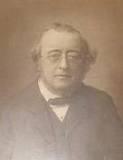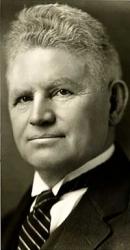Planning worship?
Check out our sister site, ZeteoSearch.org,
for 20+ additional resources related to your search.
- |
User Links
Person Results
Alexander Robert Reinagle
1799 - 1877 Person Name: Alexander R. Reinagle, 1799-1877 Composer of "ST. PETER" in The Christian Hymnary. Bks. 1-4 Alexander Robert Reinagle United Kingdom 1799-1877. Born at Brighton, Sussex, England, gf Austrian descent, he came from a family of musicians, studying music with his father (a cellist), then with Raynor Taylor in Edinburgh, Scotland. Reinagle became a well-known organ teacher. He became organist at St Peter’s Church, Oxford (1823-1853). He was also a theatre musician. He wrote Teaching manuals for stringed instruments as well. He also compiled books of hymn tunes, one in 1830: “Psalm tunes for the voice and the pianoforte”, the other in 1840: “A collection of Psalm and hymn tunes”. He also composed waltzes. In 1846 he married Caroline Orger, a pianist, composer, and writer in her own right. No information found regarding children. In the 1860s he was active in Oxford music-making and worked with organist, John Stainer, then organist at Magdalen College. Reinagle also composed a piano sonata and some church music. At retirement he moved to Kidlington, Oxfordshire, England. He died at Kidlington.
John Perry
Alexander Robert Reinagle
Daniel Herbert
1751 - 1833 Author of "O Lord! rebuke me not in wrath; thy anger who can bear?" Herbert, Daniel , for many years a Congregational Minister at Sudbury, Suffolk (b. circa 1751, d. Aug. 29, 1833), published:—
Hymns & Poems, Doctrinal and Sentimental, for the Citizens of Zion, who are longing to know their election of God, and who love Evanqelical Truths. These were published in 3 volumes. (i., 1801; ii., 1819; iii., 1827). Both hymns and poems are very indifferent in quality, and strongly Calvinistic in doctrine. (Singers & Songs, by J. Miller, 1869.)
-- John Julian, Dictionary of Hymnology
Daniel Herbert
Thomas Cradock
1718 - 1770 Author of "How long, O Lord, will thy dread anger hold?" Rector of St. Thomas's, Baltimore County, Maryland
Thomas Cradock
Carl P. Daw Jr.
b. 1944 Person Name: Carl P. Daw, Jr., b. 1944 Author of "Rebuke Me Not in Anger, Lord" in New Wine In Old Wineskins Carl P. Daw, Jr. (b. Louisville, KY, 1944) is the son of a Baptist minister. He holds a PhD degree in English (University of Virginia) and taught English from 1970-1979 at the College of William and Mary, Williamsburg, Virginia. As an Episcopal priest (MDiv, 1981, University of the South, Sewanee, Tennesee) he served several congregations in Virginia, Connecticut and Pennsylvania. From 1996-2009 he served as the Executive Director of The Hymn Society in the United States and Canada. Carl Daw began to write hymns as a consultant member of the Text committee for The Hymnal 1982, and his many texts often appeared first in several small collections, including A Year of Grace: Hymns for the Church Year (1990); To Sing God’s Praise (1992), New Psalms and Hymns and Spiritual Songs (1996), Gathered for Worship (2006). Other publications include A Hymntune Psalter (2 volumes, 1988-1989) and Breaking the Word: Essays on the Liturgical Dimensions of Preaching (1994, for which he served as editor and contributed two essays. In 2002 a collection of 25 of his hymns in Japanese was published by the United Church of Christ in Japan. He wrote Glory to God: A Companion (2016) for the 2013 hymnal of the Presbyterian Church (U.S.A.).
Emily Brink
Carl P. Daw Jr.
Gregory Murray
1905 - 1992 Composer (tone) of "[Judge all the nations and vindicate me, LORD]" in Christian Worship
Gregory Murray
David G. Preston
b. 1939 Author of "Rebuke Me Not in Anger, LORD" in Christian Worship
David G. Preston
Alfred R. Gaul

1837 - 1913 Person Name: Alfred R. Gaul, 1837-1913 Composer of "ST. SAVIOUR" in The Cyber Hymnal
Alfred R. Gaul
Henry J. Gauntlett

1805 - 1876 Arranger of "STUTTGART" in Hymns for the Living Church Henry J. Gauntlett (b. Wellington, Shropshire, July 9, 1805; d. London, England, February 21, 1876) When he was nine years old, Henry John Gauntlett (b. Wellington, Shropshire, England, 1805; d. Kensington, London, England, 1876) became organist at his father's church in Olney, Buckinghamshire. At his father's insistence he studied law, practicing it until 1844, after which he chose to devote the rest of his life to music. He was an organist in various churches in the London area and became an important figure in the history of British pipe organs. A designer of organs for William Hill's company, Gauntlett extended the organ pedal range and in 1851 took out a patent on electric action for organs. Felix Mendelssohn chose him to play the organ part at the first performance of Elijah in Birmingham, England, in 1846. Gauntlett is said to have composed some ten thousand hymn tunes, most of which have been forgotten. Also a supporter of the use of plainchant in the church, Gauntlett published the Gregorian Hymnal of Matins and Evensong (1844).
Bert Polman
Henry J. Gauntlett
F. Melius Christiansen

1871 - 1955 Person Name: F. Melius Christiansen Arranger of "TRAEDER NU TIL HERRENS BORD" in Concordia F. Melius Christiansen (April 1, 1871-June 1, 1955) was a Norwegian-born violinist and choral conductor in the Lutheran choral tradition.
Fredrik Melius Christiansen, the son of a Norwegian factory worker, was born in Eidsvold, municipality in Akershus county, Norway and emigrated to the United States at the age of 17. He settled in Washburn, Wisconsin. He studied at Augsburg College. In 1897, he returned to Europe to study three years at the Royal Conservatory of Music in Leipzig, Germany.
In 1901, Christiansen was recruited by St. Olaf College president John N. Kildahl. The St. Olaf Choir was founded as an outgrowth of the St. John's Lutheran Church Choir in Northfield. For the next 30 years, Christiansen led the St. Olaf Choir, striving for perfect intonation, blend, diction and phrasing. He was a skilled conductor, directing bands and choirs alike. He assumed direction of the St. Olaf Band in 1903, and took the ensemble on tour to Norway in 1906 to play for King Haakon VII, making it the first college music ensemble to conduct a tour abroad. Though his first love was the violin, he received international fame as founding director of the St. Olaf Choir of St. Olaf College in Northfield, Minnesota, USA from 1912 to 1944. Christiansen was considered a pioneer in the art of a cappella (unaccompanied) choral music. Christiansen composed and arranged over 250 musical selections and his choral techniques were spread throughout the U.S. by St. Olaf graduates. The great Christiansen choral tradition is a recognized feature of American Lutheranism.
Four of Dr. Christiansen's children survived to adulthood two of them adding their own legacy to the Christiansen tradition of choral music in America.
--en.wikipedia.org/wiki/
F. Melius Christiansen


 My Starred Hymns
My Starred Hymns


